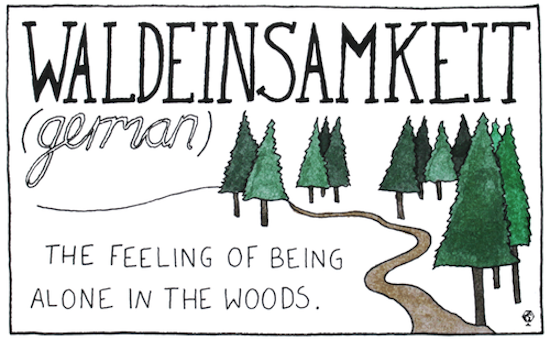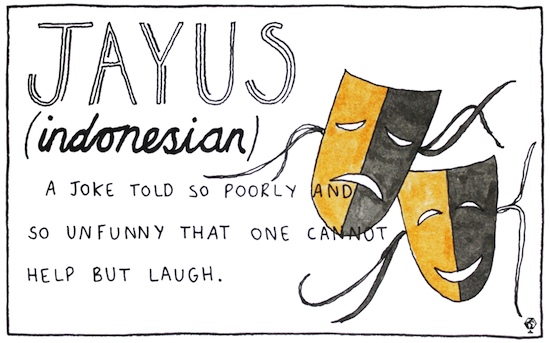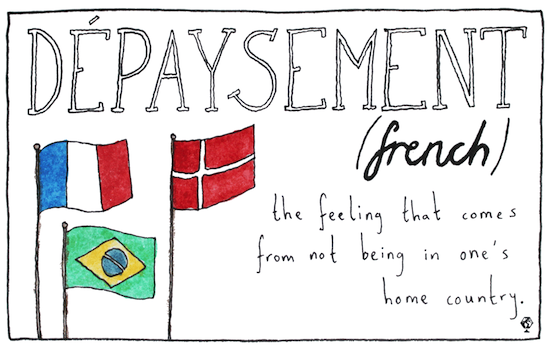English-speakers will have heard the expression, “lost in translation.” In all humility, I would like to propose a complementary saying, that of “found in non-translation”. This thought occurred to me last weekend when a friend and I were discussing an article we had both read on huffingtonpost.com, entitled “Eleven Untranslatable Words From Other Cultures”, by Ella Frances Sanders.
Arguing that no single language ever reflects the full scope of the human adventure, or in the words of the philosopher Friedrich Nietzsche “touch[es] upon the absolute truth,” the journalist in question makes a compelling case for what we who come from multiple cultures are likely to have experienced ourselves, namely that words which appear foreign to us can sometimes convey meaning even “without translations” and that there are “concepts that cannot be properly explained across cultures.” Consider, requests Sanders, the following examples.
1. The German word “waldeinsamkeit”, meaning “a feeling of solitude, being alone in the woods and a connectedness to nature,” for which we do not have an adequate translation in other languages, though it rings true to all who hear it. Or 2. “jayus”, the Indonesian word for “someone who tells a joke so badly, that is so unfunny you cannot help but laugh out loud.” Have you ever met such a person? Many might say yes! Or 3. from the French language, the word “dépaysement”, which Ella Sanders defines as “the feeling that comes from not being in one’s home country, of being a foreigner, or an immigrant, of being somewhat displaced from your origin” and which also captures something profound about the human experience.
Thus meaning may sometimes be found in non-translation, even if the broader linguistic landscape from which a word comes is still unknown. A notion which evokes what linguists would call “code-switching”, a practice we often observe among our students and other members of the Lycée Français community, “the alternate use of two languages…[a situation in which] the speaker makes a complete shift for a word, phrase of sentence, and then reverts back to the base language” (Francois Grosjean, Life as a Bilingual (Cambridge, Massachusetts: Harvard University Press, 2010), pp. 51-52).
For instance, one of us may be speaking in French, but then call on the word “advisory” in English, or vice-versa be talking in English, but employ the word “bilan” in French, in both cases because we may be able to capture more meaning by not translating each word than we would by attempting to do so. Of course, when such code-switching takes place in a bilingual school, everyone will understand and appreciate what is being expressed. Yet even for those who speak neither French nor English, what great testimony to the splendid diversity of our world!
About the Author :
Sean Lynch was Head of School at the Lycée Français de New York from 2011 to 2018, after having spent 15 years at another French bilingual school outside of Paris: the Lycée International de St. Germain-en-Laye. Holding both French and American nationalities, educated in France (Sciences Po Paris) and the United States (Yale), and as the proud husband of a French-American spouse and father of two French-American daughters, Sean Lynch has spent his entire professional and personal life at the junction between the languages, cultures and educational systems of France and the United States. In addition to being passionate about education, he loves everything related to the mountains, particularly the Parc National du Mercantour.




